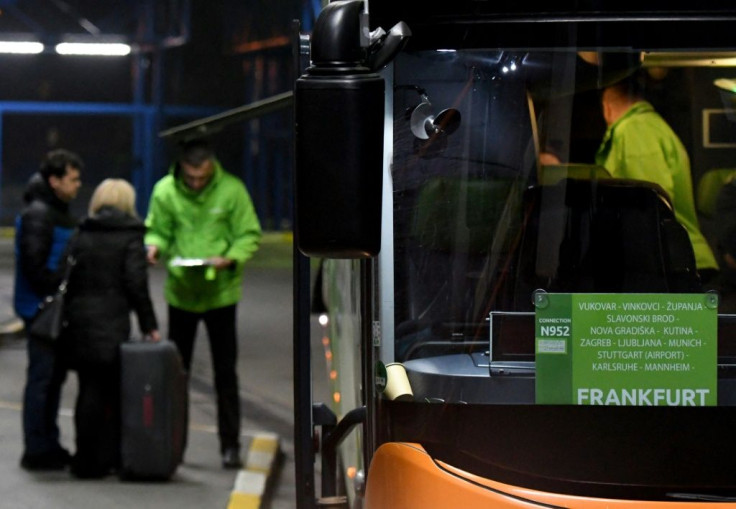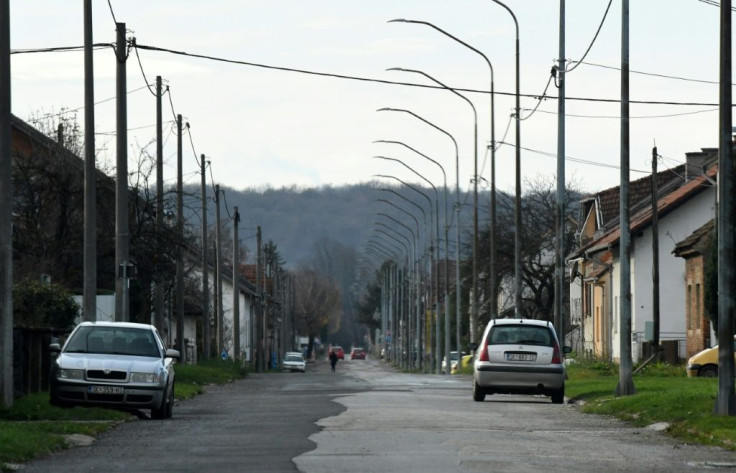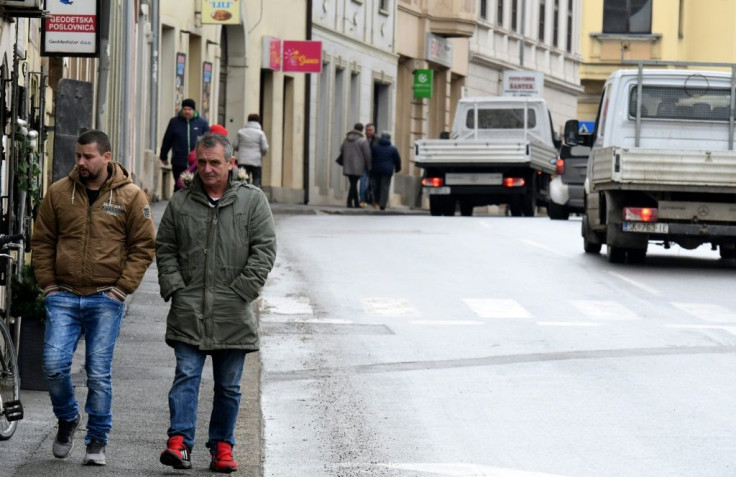EU Presidency Comes To Zagreb But Croatians Keep Leaving

In the eyes of its Balkan neighbours, Croatia is the lucky one, having managed to join the European Union six years ago.
Yet its people are still leaving the country in droves -- citing the same problems that haunt the rest of the region.
As Zagreb prepares to take charge of the EU's rotating presidency on January 1, the government is grappling with how to curb an emigration exodus that has been emptying swathes of the Adriatic nation.
In towns and villages dotting the interior, "For Sale" signs hang on vacant houses in a reminder of the tens of thousands who have left for wealthier European capitals.
"We hear children's laughter less and less," says Visnja Cosic, a 50-year-old selling vegetables at an outdoor market in the small town of Petrinja, where one in eight people have left in the past decade.
"In small towns like this there are no jobs," she explains.
Her husband Mario adds: "If I were 20 years younger I would buy a one-way ticket" to western Europe.
Since joining the bloc, Croatia's exports have risen and the country has welcomed EU funds for infrastructure and other projects.
But the average monthly salary of 862 euros ($960) still can't compete with those in richer member states, and the corruption and nepotism plaguing the rest of the Balkans are still alive in Croatia too.
Opening up the borders has in fact made emigration easier, with 15.4 percent of working-age Croats now living in other EU countries, according to Eurostat. That is the second-highest proportion within the bloc after Romania.
Since its EU entry in 2013, 190,000 people have left the country of around 4.2 million, according to official data, though experts say the real number is likely closer to 300,000.

More than two-thirds of Croatians leave for economic reasons, while the second driver is frustration with widespread graft, according to a November survey by Zagreb University.
"People perceive their economic situation as bad but cannot see how to change it as the 'rules of the game' are fixed, the system is corrupt," said Zvonimir Galic, a psychology professor who led the survey.
Zagreb native Ana-Marija Hota, for instance, owned a profitable hair salon in the capital for over a decade.

But two months after the EU's gates opened in July 2013, she and her husband decided to take their two children to Ireland -- which is among the top three destinations for Croatians, alongside Germany and Austria.
And they have no plans to return.
"Higher income was only one of the reasons," said the 37-year-old, who now juggles two jobs in Dublin at a hair salon and in digital marketing.
The other key factors were "corruption, the untouchability of politicians suspected of wrongdoing, intolerance", she said.
While rural towns and villages are emptying out fastest, Zagreb's young and educated are also packing their bags, threatening a "brain drain" crisis.
"I got an offer which I simply could not refuse," says 26-year-old Ivan Krpelnik, an IT specialist who has been working in Germany since August.
"Here, work and effort are valued much more than in Croatia," he adds, also citing the poor public services, including healthcare, at home.
Other Eastern European countries experienced similar waves of migration after joining the bloc.
But Croatia's small population puts it at especially high risk, said demographer Stjepan Sterc.
With low birth rates also shrinking the workforce, the country is headed for a "demographic collapse" that threatens the economy at large, as well as the pension, health and education systems, said Sterc.
Croatia's GDP per capita is still the second lowest in the EU after Bulgaria, Eurostat data showed in June.
The economy is also hugely dependent on the tourism sector, where businesses are increasingly relying on immigrants from neighbouring Balkan states to plug labour gaps.
The government acknowledges the problem but has struggled to reverse it.
President Kolinda Grabar-Kitarovic, who is running for re-election on December 22, recently deemed the shrinking population as the country's "main challenge".
Prime Minister Andrej Plenkovic has also put the stakes in no uncertain terms, describing the demographic issue as key to "the survival of the Croatian nation".
© Copyright AFP 2024. All rights reserved.




















